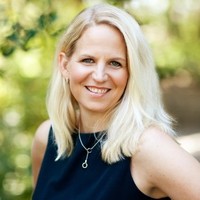
Over the course of her 35-year career, UChicago Medicine alum Dr. Risa Stack (Ph.D., ’96) has delved into a unique combination of fields that seemingly have little relation to one other: medicine, entrepreneurship, venture capital, and trading.
Stack earned her bachelor of science degree in Genetics and Development from the University of Illinois Urbana-Champaign. She then went on to attend the University of Chicago’s Pritzker School of Medicine and earned a Ph.D. in immunology in 1996.
Stack credits UChicago for teaching her how to think and tackle scientific problems. “The most wonderful thing about the University of Chicago was the strong scientific training I received,” Stack said in an interview with The Maroon. “I really love learning, and much of my time as I studied for my Ph.D. was spent learning how to approach and tackle a scientific problem,” Stack said. “I also had time to pursue the experiments I wanted and had a lot of freedom within my studies, which enables me to do my job well now because I often have to think about how to conduct experiments and consider whether the results are enough to build a business.”
Stack’s exposure to finance began while she was studying at UChicago Medicine through a position trading derivatives on the floor of the Chicago Board of Trade. Even early on, she knew she didn’t want to limit herself to the strict dimensions of medicine and healthcare. “At the time, I liked the risk taking aspect of trading, and I wanted to figure out a way that I could pursue science while also taking risks,” she explained.
Stack explains that her transition from healthcare to finance was initially difficult, but her love of learning motivated her to continue down this new path. “When I started my first job, I had to look at profit-loss statements and balance sheets, and I had no idea how to do that,” she said. “I took classes at night to get some basic business training, and although it was hard at the time it’s now just another part of my job.”
Stack has been a venture capitalist for 25 years and has been a partner at the Silicon Valley-based venture capital firm The Production Board since 2022. Stack defines her investment strategy as focusing on the early stage of businesses to help them develop new tools. She feels she has an ability to spot early potential and develop ideas into concrete business products.
“When I started, my investment strategy was differentiated from the norm because most people didn’t spend a lot of time at universities talking to professors,” Stack said. “That’s become much more popular now.”
Because she has experience founding successful companies such as Veracyte (Nasdaq: VCYT) and Menlo Micro, Stack understands the components needed to build a business: marketing, consumer relations, and talent attraction. “When you’re a venture capitalist, you’re always trying to figure out the next problem you can solve,” Stack explains. “And then you’re trying to figure out whether that problem is big enough to build a business around.”
Stack gravitated toward entrepreneurship very early in her career. The companies she has helped hit the ground running operate mostly within diagnostics, or the process of determining the nature of a disease. Often, these companies aim to offer easily accessible technologies to patients suffering from long-term illnesses.
For instance, a company that Stack has invested in, Genomic Health, focuses on developing molecular diagnostics for breast cancer and has been successful. “Other venture capitalists have also started to use gene expression as a method to develop diagnostics for cancer and similar diseases,” Stack said.
Stack’s business strategy with new ventures involves input from both doctors and patients, as well as keeping up to date on the latest technological developments. Before Stack allocates meaningful time and money into a business, she first surveys physicians about what problems they have that could be solved by a diagnostic. She also asks prospective consumers directly what products would help them. “That way, I don’t have to guess what will suit them,” Stack explains.
Following consultation with experts, Stack then develops new diagnostic products and researches the potential market for the products. However, not every idea comes to fruition, and Dr. Stack acknowledges the uncertainty regarding each venture.
“I never know what the future will look like, and I make a lot of high-risk bets,” she admits. To mitigate this risk, she spends a lot of time with cutting-edge researchers figuring out how to apply technology to new diagnostics. “A lot of the stuff I do fails, but some of the companies are very successful and help a lot of people,” Stack said.
When asked about the impact that a UChicago medical education had on her career, Stack emphasized the flexibility of being able to pursue her interests while also staying on track with her degree. “The University taught me how to handle a scientific problem in terms of specific observation, while I also had the freedom to pursue whatever I wanted,” she said.
In some ways, her time at UChicago provided the foundation for her career as a venture capitalist and entrepreneur. The openness of her degree enabled her to think outside the boundaries of the medical field and consider the ways she could broaden her sphere of interest.
For undergraduates who may wish to pursue a similar path, Stack heavily emphasizes the importance of hands-on experience. “Many interns are much more energized when they realize what you can do with a medical background,” Stack said.








